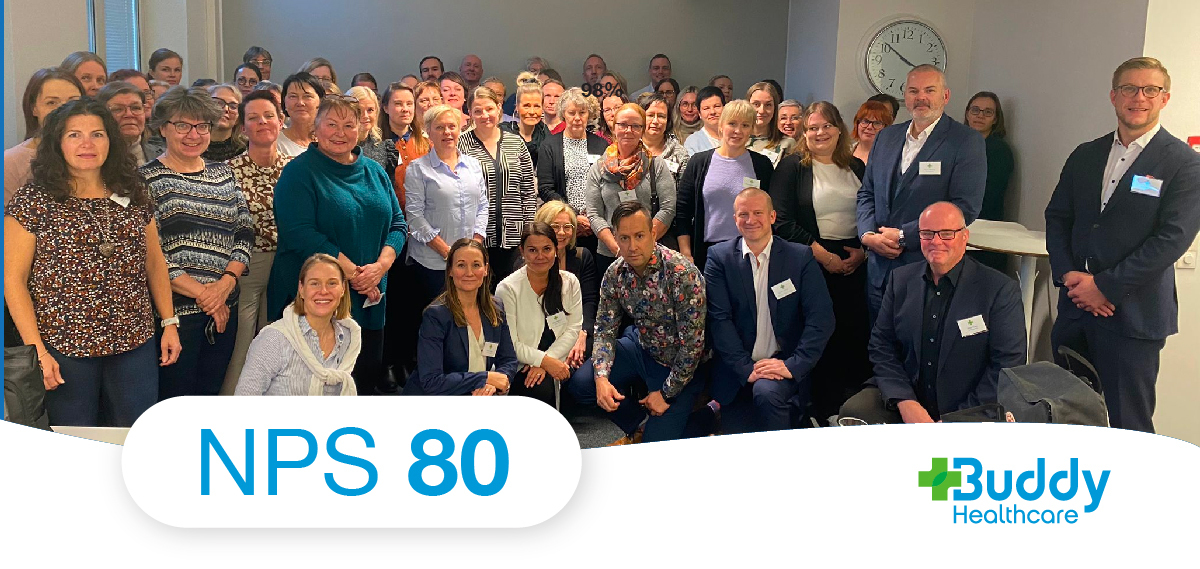Knowledge is Power - empowering patients, improving labor and delivery outcome and supporting birth clinics
“Each patient carries his own doctor inside him.”
—Norman Cousins, Anatomy of an Illness
A recent Berliner Zeitung article, highlighted the serious challenges of the labor and delivery department of a large inner city hospital in Germany’s capital. The physician interviewed remained anonymous, but the birthing clinic's resource shortage did not remain a mystery. In fact, this article exposes what many providers in the labor and delivery field experience on a daily basis in Germany. Not equipped to provide the best care due to risky patient to staff ratios, an overall sense of hopelessness is felt in busy birthing centers across the country. In fact, the interviewee states that it is only a matter of time when a woman or baby will die in the labor and delivery department due to the lack of personnel resources. And nobody wants to experience this on their shift of course.
And what about the pregnant women who have no choice but to hope that someone in an understaffed and overworked department will have the capacity to offer them as much information and care as possible during such a vulnerable time.
These are worst case scenarios, of course. Not all women arriving at the hospital will necessarily be at risk. And not all women giving birth in an understaffed facility are necessarily at risk. It is, however, not a medical specialty that can predict the patient flow as say an elective orthopedic surgical unit could. The babies come when they come. Or do they?
A New, Engaged Relationship with Patients & Clinics
It is important to realize that there are many instances where women arrive at the clinic entirely too early and are sent back home. According to discussions with different healthcare providers in women’s clinics across Germany, it isn’t uncommon for women to arrive at the hospital prematurely thinking that it’s “time” or that ”something is wrong” when in fact, they could have stayed at home had they been better informed about their own health status and what to expect at certain stages of the pregnancy. Some research also indicates that there are benefits to delaying admission to labor and delivery wards, including fewer medical interventions as well as better outcomes. If women can be offered frequent contact and support, as well as nonpharmacologic pain management measures, admission to hospital may be safely delayed in latent phases of labor.
On the other side of the same coin, women are frequently sent home too early after having given birth, or without adequate postpartum support, due to the postpartum midwife shortage as discussed in our previous article. According to a Reuters article from 2016, the World Health Organization suggests that women stay in the hospital at least 24 hours after a vaginal delivery, but researchers found that depending on the global region, up to 83 percent of women left before that cutoff.
Regardless of the scenario, there are not enough human and time resources to adequately support and educate patients.
The partnership between a physician and patient requires dual responsibility. Physicians have a duty to inform patients how to achieve health and wellness, and patients have a responsibility to act on the information provided in their best health interest.
We have developed BuddyCare with exactly this concept in mind. Through our direct research with hospitals, through discussions and studies, we learned that patient education and health literacy have a direct impact on the care of a patient.
In the case of pregnancy and birth, BuddyCare has the ability to combine face to face interactions with remote digital guidance, education and monitoring in order to provide optimal care and also support clinical decision making and staff.
How can BuddyCare help to empower patients, improve outcomes and relieve clinics?
Knowledge is power. The more educated a patient is about their own body and condition, the more likely that patient is to have a good outcome. The potential for improved health outcomes through patient education and self-management programs is immense.
Physicians and nurses must promote patient education and engagement through improvement in patients' health literacy. Health literacy is defined as the capacity to seek, understand, and act on health information.
With the help of a patient education and monitoring platform, birthing clinics can deliver vital information and support patient education and empowerment. Empowerment is more than a paradigm of clinical practice and has become one of the core features of health care.
According to a cross-sectional survey, where 609 inpatients in four teaching hospitals in northern Taiwan from August 2009 to July 2010 were interviewed, sufficient patient education and patient satisfaction are positively related to patient empowerment.
By delivering hospital-approved information through a secure communication channel at specific times during a woman’s childbearing journey, clinicians can ensure that patients are adequately informed about their own state of health. In a typical, digital pregnancy and birth Carepath, women receive scientifically validated content related to their current phase of pregnancy. Not only will they be provided with regular informational materials, such as what to expect during certain weeks of fetal development, but they will also be provided with reminders to participate in certain health supporting activities such as walking and moving, eating right and sleeping.
The platform also establishes a direct relationship between the clinician and the patient that is functionally “open door” 24/7, 7 days a week. Thus, patients can ask important questions via a secure messaging channel, or connected video chat, which may otherwise have warranted an unnecessary visit to the hospital. Staying connected and feeling cared for is arguably one of the most important factors in affecting patient outcome. Research has identified good communication skills to be a key factor in ensuring better patient outcomes, and nurturing patient satisfaction. By creating a space where patients and providers can store and access standardized information, it can be assured that the right kind of information gets delivered at the right time, as patients can take it slow in reading and comprehending and even re-reading important information at their own pace. Empowering patients to participate in their own care by part-taking in activities, questionnaires or exercise videos, for example, is a surefire way of increasing patient health literacy and reducing unnecessary hospital visits and improving childbirth outcomes.
With the BuddyCare platform, patients and clinicians receive a service that will support them before, during and after birth, by supplying them with targeted, appropriate information at the right time and thus creating a feeling of continuous care. In a study about the impact of continuous care on health outcomes and cost for diabetes mellitus, it was shown that continuity of care significantly reduced health complications and medical costs.
One small piece of information, delivered at the right time, can make a significant impact on the behavior of a patient and the subsequent treatment outcome.
By fostering patient education and health literacy, through a steady stream of digital support and communication, we can alleviate stress for overworked birthing center staff and support healthy pregnancies and births. The combination of properly timed inpatient treatment and adequately structured digital, at-home patient support will bring knowledge to patients and increase the number of empowered mothers. This is the way of the labor and delivery future.
For more information on how you can bring the future into your birthing center to improve patient outcome and staff support please contact us and we are happy to schedule a consultation with you.
Sources:
https://abcnews.go.com/US/dismissed-women-open-home-hospitals-labor/story?id=65875943
https://www.reuters.com/article/us-health-birth-hospital-discharge-idUSKCN0WC266
The evolving concept of health literacy. Nutbeam D Soc Sci Med. 2008 Dec; 67(12):2072-8.




